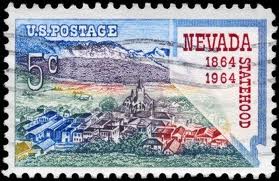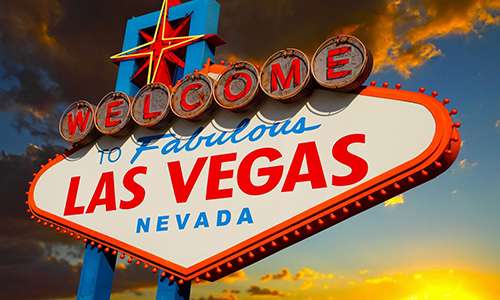Nevada Explores Possible Online Gambling Expansion
Nevada’s politicians and a large portion of the state’s online-gambling industry appear poised to pursue an expansion of the state’s available offerings, according to several related reports. Of the three US states to have formally regulated and legalized one or more forms of online gambling three years ago, only Nevada initially limited itself to an online-poker-only status. The two other states to regulate online gaming, New Jersey and Delaware, also gave the thumbs-up to other forms of online casino games, and now Nevada, seeing the possible growth, may soon follow suit.
 The possibility that Nevada, New Jersey and Delaware could combine forces to boost online-poker participation by joining player pools and boosting liquidity has been bandied about for years, almost since the three states themselves authorized online play. Yet such a pooling has never happened for Nevada, despite all the talk. Now, Nevada Governor Brian Sandoval is back, knocking at that door, openly lobbying for his state to enter such a liquidity-sharing deal with New Jersey… if only New Jersey pols can be talked into it as well.
The possibility that Nevada, New Jersey and Delaware could combine forces to boost online-poker participation by joining player pools and boosting liquidity has been bandied about for years, almost since the three states themselves authorized online play. Yet such a pooling has never happened for Nevada, despite all the talk. Now, Nevada Governor Brian Sandoval is back, knocking at that door, openly lobbying for his state to enter such a liquidity-sharing deal with New Jersey… if only New Jersey pols can be talked into it as well.
“It would be like putting together the Yankees and the Dodgers,” Sandoval said, speaking at a Nevada Gaming Policy Committee meeting about a week ago. Unless that’s the Tampa Yankees and the Oklahoma City Dodgers, that’s a bit of a stretch, since the “whenever it happens” legalization of online gambling for states such as California and New York will eventually be the market-changing play.
Yet what Sandoval and his backers are getting at is true: Both Nevada’s and New Jersey’s state coffers would be enriched at least by some degree if the two states can get together and pool their sites’ players.
The reasons why it hasn’t happened yet are part political, part technical/legal, though it all seems more a matter of the topic finally amassing enough momentum to move. At couple of the technical issues would have to be resolved, such as where the gaming servers would be located, and how rake generated from the poker players would be split.
The gaming-server question is easy enough to fix via legislative tweak from any of the involved states, but the rake allocation is a bit more complex. First, Nevada and New Jersey would have to agree to an in-common rake structure, then decide if the rake is deducted from the winner’s hand (and thus goes solely to the revenue pool from that player’s state), or is computed via a contributed-rake model involving all players active in any raked pot.
Similar questions were part of the network-based online-poker model that grew to dominate the industry last decade, a solo giant or two notwithstanding. So the questions themselves aren’t exactly new, as much as they’re a reason to argue about money.
There’s also the political environment. In a recent piece for OPR, Joss Wood argues that Nevada billionaire Sheldon Adelson may be continuing to wield influence in New Jersey, via that state’s governor, Chris Christie, with an eye toward blocking any form of online gambling expansion. Such a blanket blockade would necessarily include any liquidity-sharing deal between the two states.
It’s a possibility, and Adelson was widely believed to be the person behind the perpetual delay in approval for the PokerStars brand in New Jersey, where it has rocketed to the top of that market segment in only a couple of months.
It’s a possibility. But it’s also possible that Adelson views this as only a skirmish in a larger war, one that he still plans to win on the federal level. If so, then trying to block a simple player-pooling deal between New Jersey and Nevada might not be worth the bother.
Another factor to consider is that Nevada itself is pursuing a push to legalize all forms of online gambling, and not just online poker. At the same Nevada Gaming Commission gathering where Sandoval touted the opportunity of a liquidity-sharing deal with New Jersey, he and others in attendance also learned from where the larger money in the Garden State online-gambling market was derived.
As New Jersey’s monthly updates have shown, roughly five-sixths of the state’s online-gambling revenue has been generated from online versions of traditional casino games other than online poker. Right now, that’s money that Nevada’s casinos and online-gambling proponents aren’t seeing at all. In addition, concerns over possible cannibalization of land-base gambling and several forms of illicit or unwanted action have been largely debunked. Thus, the majority of Nevada’s casino-operating corporations have recognized New Jersey’s growing success and are thus lobbying for that expansion.
Sure, a couple of giants continue their attempts to block that path, but Adelson and Steve Wynn don’t seem to have the upper hand in Nevada. NGC chair A.G. Burnett is already on record as supporting much of the proposed expansion, though the litmus test will come when the NGC as a whole, with all the lobbying influences within, decides whether or not to forge ahead with multiple forms of online gambling.
There’s a growing pressure in Nevada to maximize the opportunity far more than what’s been done to date. We’ll see what comes of it.


















COMMENTS